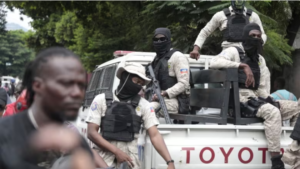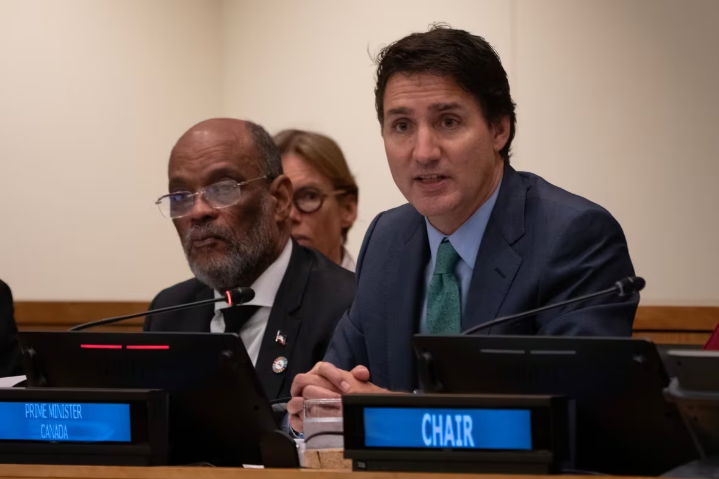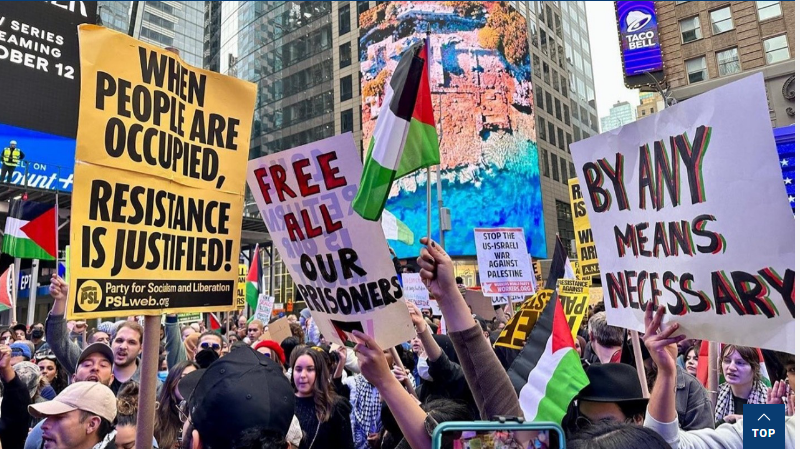Under pressure to lead a force, PM Trudeau manoeuvred to dodge a potential quagmireBack in February, the Caricom group of Caribbean nations met in Nassau to discuss ways to reduce the chaos and violence in its biggest member state — Haiti.

Bahamian Prime Minister Philip Davis acknowledged that the problem was too big for the bloc of small island nations to deal with on its own.”What we at CARICOM have come to appreciate is that we do not have the resources to be able to deal with the Haiti problem ourselves, and we do need outside help,” he said.
Fortunately, added Bahamian Foreign Minister Frederick Mitchell, that outside help was already being lined up.”The Canadian Prime Minister Justin Trudeau is coming down,” Mitchell said. “Canada has been asked to take the lead.”The UN Security Council finally voted to authorize such a mission this week (China and Russia abstained). The Bahamas, Jamaica and Antigua & Barbuda have all agreed to send troops or police to Haiti.
But as the same Caribbean countries gather with the Trudeau government in Ottawa this month for a follow-up meeting, they’ve realized that Canada will not be leading the mission and won’t be sending any of its forces to help.
Two years of dodging and weaving
The story of Canada’s involvement in Haiti over the past two years is above all a story of a government determined not to get drawn into a potential quagmire.The Trudeau government never thrust itself forward for such a mission in the first place. It was rather volunteered for the role by a more powerful ally: the Biden administration.
Washington did not hesitate to suggest to other governments that, given its own commitments in Ukraine and elsewhere, Canada was the logical choice to lead a mission to defeat Haiti’s ruthless gangs.Never far from front-of-mind for President Joe Biden and his team was the desire to avoid a surge in Haitian migration that inevitably would lead to rafts off the Florida coast and migrant caravans at the Rio Grande.
The Trudeau government, unwilling to give a flat no to the many countries asking it to save the day, used a variety of tactics to stall for time. It sent fact-finding missions to assess conditions on the ground, convened parties for talks, set conditions that were unlikely to be met and never missed an opportunity to remind the world that past interventions had not produced good results.


